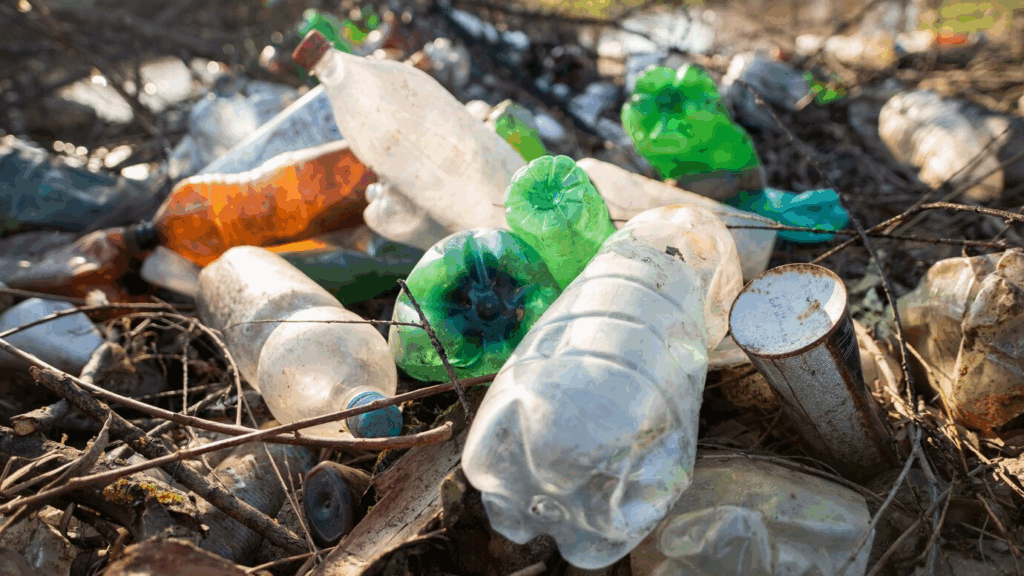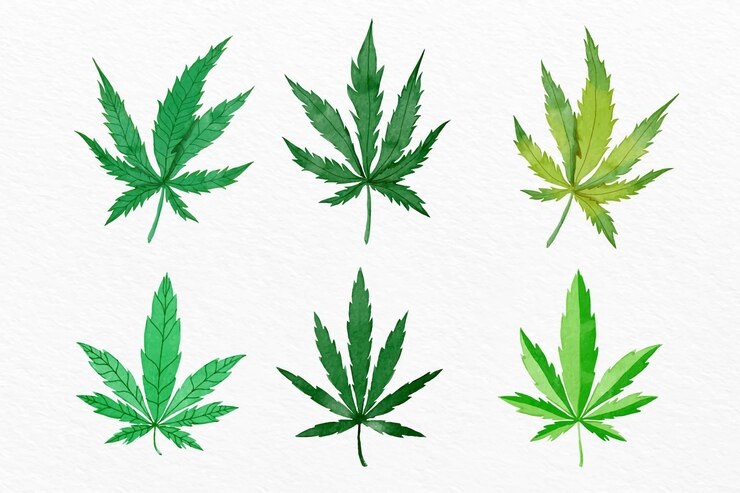5 Key Differences Between Hemp Plastic and Regular Plastic
Plastic is evil.
There’s no denying the facts. Plastic is bad for the air, the water, the land, and even for us, humans.
Yet, over 460 million tons of plastic is produced every year.
Why? Because we simply cannot do without it. Almost everything that we use today, uses some form of plastic. It is practically impossible to do away with all plastics.
However, that’s not needed either. What we do need is to find chemical-free alternatives to petroleum plastic. The one that doesn’t pollute our air during production, doesn’t end up in landfills and doesn’t drain toxins into our oceans.
Luckily, we already have such an alternative – hemp plastic.
It is sustainable, eco-friendly, and an emerging contender to help us clean up the mess that traditional plastic has created.
So, what makes hemp plastic stand out from regular plastic? We have explained the key differences based on 5 parameters in detail below.
Hemp plastic vs regular plastic
1. What they mean for the environment
The production of traditional plastic is an absolute nightmare for the planet. It begins with extracting petroleum (a finite resource) and requires massive energy consumption.
As plastic is used, it doesn’t biodegrade. Instead, it hangs around for hundreds, even thousands, of years. That’s a lot of time for harmful chemicals to seep into our soil, water, and air.

The environmental impact of hemp plastic? None.
Hemp plastic is made from a renewable resource: the hemp plant. It grows quickly, absorbs CO2, and doesn’t need pesticides or herbicides to thrive. Additionally, hemp plastic is biodegradable. So it can decompose faster, reducing the long-term environmental burden.
Hemp plastic also has a significantly lower carbon footprint than traditional plastic.
2. What’s inside them
Regular plastic is made from polymers, which are long chains of molecules derived from petroleum. These chains give plastic its durability. But they also make it resistant to breaking down. The result? Strong but tough-to-degrade plastic that sticks around forever.
The durability of hemp-based bioplastics doesn’t come with that side effect.
Hemp fibers are strong, lightweight, and durable. So when hemp is used in plastic production, it creates a material that is just as strong as regular plastics. But hemp plastic doesn’t release harmful toxins during use or when it’s disposed of.
3. What they mean to the economy of the world
We know plastic is cheap to make, especially when it’s petroleum-based. But the environmental costs of producing regular plastic don’t get factored into the price.
Hemp plastic offers a long-term solution by reducing our dependence on fossil fuels. It encourages the development of sustainable industries.
Hemp production also creates jobs. From farming to manufacturing to research and development. In fact, the shift toward hemp plastic could revitalize rural economies. It can provide farmers with an alternative, eco-friendly crop that’s in high demand.
Plus, hemp plastic can be produced locally. This reduces the carbon footprint associated with transporting materials across the globe.
While the initial cost might be higher, the long-term benefits outweigh the drawbacks. It is a material that’s good for business bottom lines, brand reputation, and the planet.
4. How safe are they
We all know that plastic isn’t just bad for the environment, it’s also bad for us. Plastics are notorious for leaching harmful chemicals like BPA (Bisphenol A). This can disrupt our endocrine system and cause long-term health problems. That’s why people are becoming increasingly wary of plastic products, especially those that come in contact with food or skin.
Hemp plastic, on the other hand, is non-toxic. It doesn’t contain the harmful chemicals found in many traditional plastics. This makes it a much safer option for consumers. Whether it’s packaging for food, drink bottles, or cosmetic containers, hemp plastic doesn’t pose the same risks. No BPAs, no phthalates, no health worries. It’s natural, safe, and environmentally friendly.
5. What happens to them over time
When regular plastic reaches the end of its life, it’s typically thrown away, incinerated, or sent to a landfill. These plastics often don’t decompose, causing serious waste management issues.
However the biodegradable properties of hemp plastic make it a sustainable alternative. When it’s disposed of, it will break down naturally in a matter of months, leaving no toxic residues behind.

What happens to a hemp plastic bottle after 80 days.
Source
That’s a significant step toward reducing plastic waste in landfills and oceans.
With that, we have not just understood the environmental impact of hemp plastic but also seen that it is better for the economy, our health, and from a material science perspective.
Quick Summary: Hemp plastic vs regular plastic
Here’s a quick rundown of hemp plastic vs regular plastic
| Hemp Plastic | Regular Plastic |
|---|---|
| Made from renewable hemp plants. | Made from non-renewable petroleum. |
| Biodegradable; breaks down in months. | Non-biodegradable; lasts centuries. |
| Lower carbon footprint; absorbs CO2. | High carbon footprint; energy-intensive. |
| Strong, lightweight, and durable. | Durable but hard to break down. |
| Non-toxic; BPA and phthalate-free. | Can leach harmful toxins like BPA. |
| Creates jobs; supports sustainable industries. | Relies on finite resources; harms the environment. |
| Higher initial cost; long-term benefits. | Cheap to produce; ignores environmental costs. |
| Boosts circular economies; reduces waste. | Increases waste; hinders sustainability. |
| Safe; no chemical leaching. | May leach toxins; poses health risks. |
| Biodegradable; leaves no toxic residues. | Ends up in landfills, oceans, or incinerated. |
Picking the right type of plastic
So, now we know the key differences between hemp plastic vs regular plastic. One is environmentally friendly, sustainable, and safe for both the planet and people. The other? Not so much.
And you have the power to switch to the chemical-free alternatives to petroleum plastic.
Explore some of the hemp plastic products that you can start using today here.
Vishal Vivek
Vishal Vivek is the Founder and CEO of Ukhi, a pioneering bio-materials company dedicated to ending plastic pollution by converting agricultural waste into high-performance compostable polymers. With a background in sustainable entrepreneurship and over a decade of technology experience, he leads Ukhi’s vision to create scalable, planet-positive material solutions. Previously, Vishal founded the Hemp Foundation, where he empowered more than 1,000 farmers and advanced sustainable livelihood initiatives. His work has been recognized through awards such as the HDFC Parivartan Grant and featured in leading publications like Forbes and Entrepreneur. Times Group recognized him as a legendary entrepreneur and published his biography in “I Did IT- Vol 2” alongside social pioneers like Bindeshwar Pathak (Sulabh International) and Anshu Gupta (Goonj). Vishal has authored more than 200 articles on sustainability and hemp, reflecting his deep expertise and advocacy for regenerative solutions. His commitment to grassroots impact led him to live in the remote mountains of Uttarakhand, where he immersed himself in the lives of marginal farmers, understanding their challenges and co-creating economic opportunities through hemp-based initiatives. A deeply passionate innovator, Vishal often draws inspiration from seemingly impossible achievements: “If Elon Musk can make rockets reusable, or Dashrath Manjhi can carve a path through a mountain with rudimentary tools, why can’t we eliminate the demon of single-use plastic while uplifting struggling farmers? We will make it happen—whatever it takes.” Ukhi is proud to be supported by premier institutions including IIT Guwahati, NSRCEL-IIM Bangalore, Indian School of Business (Hyderabad), Indian Council of Agricultural Research (ICAR Pusa), and the Indian Institute of Packaging. Vishal is committed to demonstrating that business can be a powerful catalyst for global environmental and social good. Connect with Vishal Vivek
Related Posts
Illinois Hemp Industry in Limbo as Delta-8 Regulation Bill Fails Amid Equity Concerns
News of the Illinois House Bill 4293, failing to pass in the state legislature as of January 2025 ha
DIABETES & AYURVEDA Is there any cure?
Diabetes or Prameh in Ayurveda is not new to humankind. As per scriptures Lord Ganesha was the first
Leading Cannabis Brand STIIIZY Launches Hemp-Infused Seltzers In The USA
Source STIIIZY, a top-selling cannabis brand in the USA, has ventured into the beverage market wit



